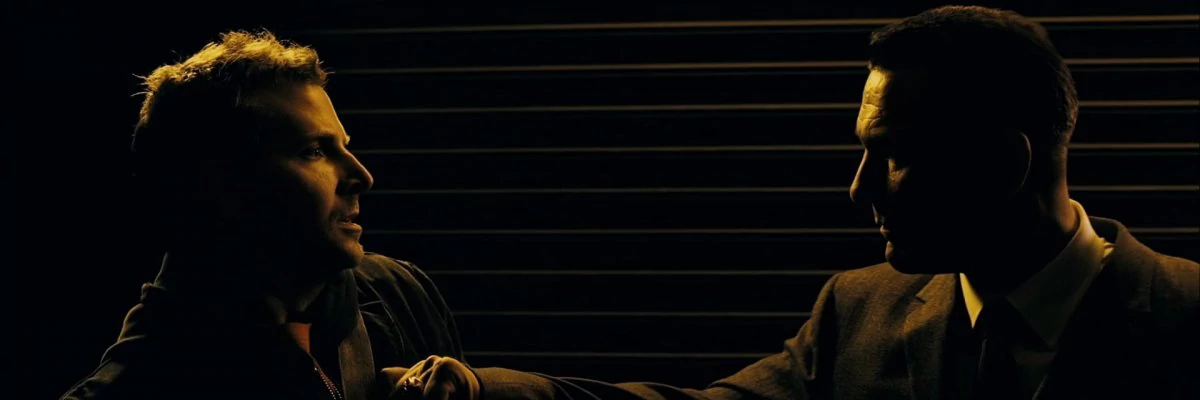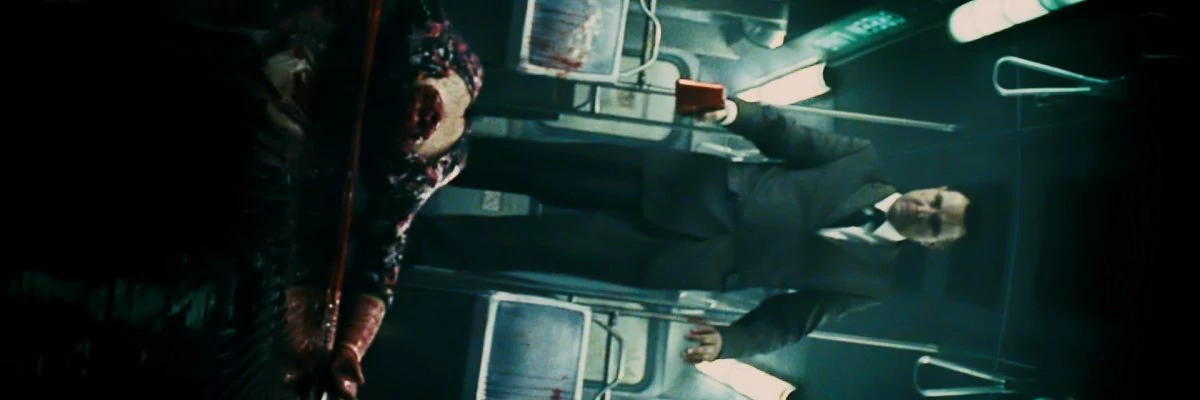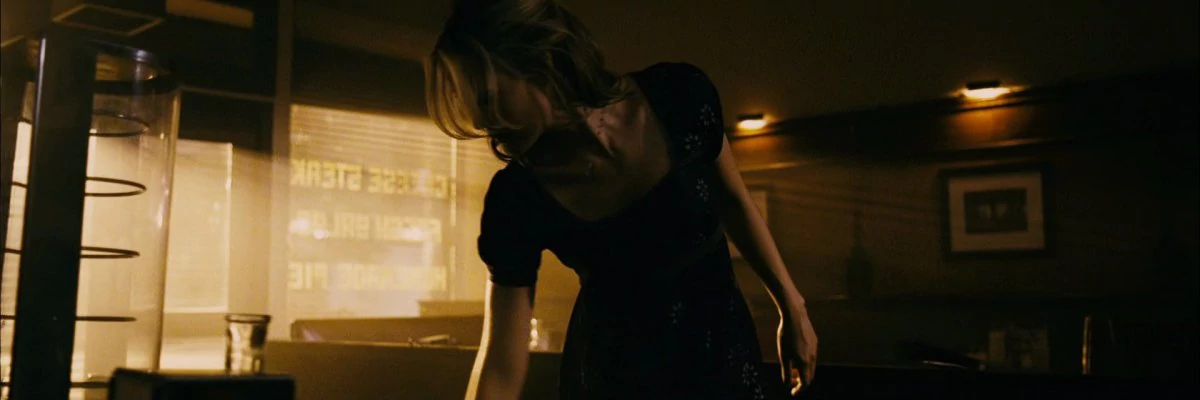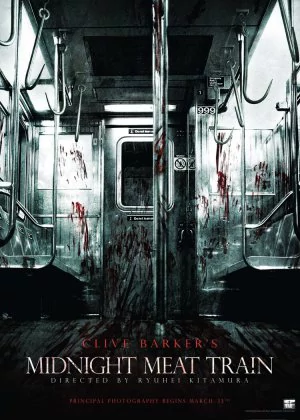The Midnight Meat Train
I've come to a point in my huge revision undertaking where I'm looking at my old ratings with a certain level of doubt. I definitely remembered liking The Midnight Meat Train, Ryuhei Kitamura's first foray into Hollywood cinema, but I also remembered it as a pretty straightforward genre flick and those don't always hold up well on revision. A little unsure of what to expect I gave the film another go, and I'm happy to say I was pleasantly surprised. The Midnight Meat Train is indeed a core genre film, but it's also a good reminder of what I've been missing in the horror genre of late.

If you look at Kitamura's Japanese work, you may not think he'd be an ideal match for Hollywood. His films are flashy, strange and often excessively over-the-top. Even so, Kitamura has always been very vocal about his wish to direct films in the US, often stressing how Hollywood cinema has influenced his style (I still don't really see that to be honest, but who am I to contradict the man). No doubt The Midnight Meat Train was a dream come true for him, not in the least because he got to adapt a vintage Clive Barker short story. The kind of horror you'd expect Kitamura to do well at.
If anything, The Midnight Meat Train reminded me of how tame horror cinema has become this past decade. The push to "elevated horror" (think A24 and compatriots) may have given the genre a little extra weight among more serious film fans, but to get there it had to leave behind a lot of its gory, juicy and entertaining bits. It's actually a little shocking to think this film used to be mainstream movie theater material, I really can't see that happening nowadays. To each his own of course, but I was more than happy to watch some torn off heads and flying eyeballs supported by a decent budget for a change.
Leon is a promising photographer who is desperately looking to break through into the art scene, selling cheap gutter press shots until that happens. When he finally finds a way in, the gallery owner tells him he needs to fully embrace the darkness of the city before he should even begin to think of showcasing his work in a gallery. Leon decides to take on the challenge and when he photographs an assault on a young girl in the subway it seems he has finally found his signature style. When the girl turns up dead the next day, Leon is shocked and starts an investigation of his own. This puts him on the trail of a stark, creepy butcher.

His move to the US cost Kitamura some of his visual bravura, but that was to be expected. There's no way Hollywood would've allowed him to do something like Versus, even so Kitamura made sure his visual signature didn't fade entirely from The Midnight Meat Train. The camera work is still very slick with a great eye for catching light and color, while the editing is edgy enough to stand out among other US horror films. And the camera twirl during the big finale (going in and out of the subway car) is vintage Kitamura. The reliance on CG gore is a bit overbearing, and it's clear that Kitamura was reigned in, but it was a lot better than I imagined/remembered.
The soundtrack is pretty forgettable, which, I'm sad to say, is par for the course for Kitamura. It's a very typical horror score, one that relies on heightened ambient sound effects, moody but generic background music and the occasional generic swoosh to create some extra tension during the horror scenes. It's certainly not a bad score, it's just extremely unremarkable and a missed opportunity to give the film a little extra flair. Not sure how much Kitamura is to blame, since it also has a very typical Hollywood horror vibe, but looking at his prior record I think it's at least a shared responsibility.
The main cast is decent enough, with a young Bradley Cooper doing a solid job as the lead and Leslie Bibb doing her best to make the jump from TV to film (which wasn't a big success in the end). But the star of the film is no doubt Vinnie Jones, who has no real dialogue to speak of, but still manages to come off very threatening and overpowering. His presence makes all the difference, even when he doesn't have a creepy mask or goofy costume to hide behind. Secondary parts (including Roger Bart and Brook Shields) are notably weaker, but not so much that they impact the overall appeal of the film.

It's rare for an Asian director to adjust to Hollywood right away, but my guess is that Kitamura was quite prepared for the jump. Of course the timing was impeccable and Barker's source material was pretty helpful too. Though The Midnight Meat Train doesn't really venture outside its comfort zone, Kitamura pushes the film to its limits and finds a fair middle ground between his zanier signature style and commercial horror cinema. The finale in particular does justice to Barker's literature, offering a nice blend of gore, mystery and the occult.
The Midnight Meat Train is a horror film for horror fans. The story is pretty basic, the drama is a little flaky and whenever people aren't being chased or butchered the quality drops visibly. It's a good thing then that the films plays to its strengths and doesn't occupy itself with all the rest except for the bare minimum. The kills are gory, Jones is an amazing killer and Kitamura's direction is the right kind of flashy, which makes for a brutal, tense and very entertaining horror flick. People looking for a solid, commercial horror film that doesn't step on the brakes too much should definitely seek it out.
